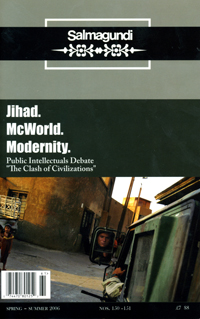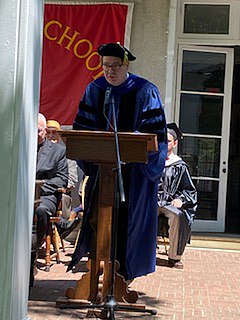Related Research Articles

Literary theory is the systematic study of the nature of literature and of the methods for literary analysis. Since the 19th century, literary scholarship includes literary theory and considerations of intellectual history, moral philosophy, social philosophy, and interdisciplinary themes relevant to how people interpret meaning. In the humanities in modern academia, the latter style of literary scholarship is an offshoot of post-structuralism. Consequently, the word theory became an umbrella term for scholarly approaches to reading texts, some of which are informed by strands of semiotics, cultural studies, philosophy of language, and continental philosophy, often witnessed within Western canon along with some postmodernist theory.

Afrocentrism is a worldview that is centered on the history of people of African descent or a view that favors it over non-African civilizations. It is in some respects a response to Eurocentric attitudes about African people and their historical contributions. It seeks to counter what it sees as mistakes and ideas perpetuated by the racist philosophical underpinnings of Western academic disciplines as they developed during and since Europe's Early Renaissance as justifying rationales for the enslavement of other peoples, in order to enable more accurate accounts of not only African but all people's contributions to world history. Afrocentricity deals primarily with self-determination and African agency and is a pan-African point of view for the study of culture, philosophy, and history.
Apollonius of Rhodes was an ancient Greek author, best known for the Argonautica, an epic poem about Jason and the Argonauts and their quest for the Golden Fleece. The poem is one of the few extant examples of the epic genre and it was both innovative and influential, providing Ptolemaic Egypt with a "cultural mnemonic" or national "archive of images", and offering the Latin poets Virgil and Gaius Valerius Flaccus a model for their own epics. His other poems, which survive only in small fragments, concerned the beginnings or foundations of cities, such as Alexandria and Cnidus places of interest to the Ptolemies, whom he served as a scholar and librarian at the Library of Alexandria. A literary dispute with Callimachus, another Alexandrian librarian/poet, is a topic much discussed by modern scholars since it is thought to give some insight into their poetry, although there is very little evidence that there ever was such a dispute between the two men. In fact almost nothing at all is known about Apollonius and even his connection with Rhodes is a matter for speculation. Once considered a mere imitator of Homer, and therefore a failure as a poet, his reputation has been enhanced by recent studies, with an emphasis on the special characteristics of Hellenistic poets as scholarly heirs of a long literary tradition writing at a unique time in history.

Reader-response criticism is a school of literary theory that focuses on the reader and their experience of a literary work, in contrast to other schools and theories that focus attention primarily on the author or the content and form of the work.
Martin Gardiner Bernal was a British scholar of modern Chinese political history. He was a Professor of Government and Near Eastern Studies at Cornell University. He is best known for his work Black Athena, a pseudoarchaeological, controversial work which argues that the culture, language, and political structure of Ancient Greece contained substantial influences from Egypt and Syria-Palestine.
Creative writing is any writing that goes outside the bounds of normal professional, journalistic, academic, or technical forms of literature, typically identified by an emphasis on narrative craft, character development, and the use of literary tropes or with various traditions of poetry and poetics. Due to the looseness of the definition, it is possible for writing such as feature stories to be considered creative writing, even though it falls under journalism, because the content of features is specifically focused on narrative and character development. Both fictional and non-fictional works fall into this category, including such forms as novels, biographies, short stories, and poems. In the academic setting, creative writing is typically separated into fiction and poetry classes, with a focus on writing in an original style, as opposed to imitating pre-existing genres such as crime or horror. Writing for the screen and stage—screenwriting and playwriting—are often taught separately, but fit under the creative writing category as well.
Jack David Zipes is a literary scholar and author. He is a Professor Emeritus in the Department of German, Nordic, Slavic and Dutch at the University of Minnesota.

Christian humanism regards classical humanist principles such as universal human dignity, individual freedom, and the importance of happiness as essential and principal or even exclusive components of the teachings of Jesus.

Tony Martin was a Trinidad and Tobago-born scholar of Africana Studies. From 1973 to 2007 he worked at Wellesley College in Wellesley, Massachusetts, and over the course of his career published more than ten books and a range of scholarly articles.
Sir Christopher Bruce Ricks is a British literary critic and scholar. He is the William M. and Sara B. Warren Professor of the Humanities at Boston University (US), co-director of the Editorial Institute at Boston University, and was Professor of Poetry at the University of Oxford (UK) from 2004 to 2009. In 2008, he served as president of the Association of Literary Scholars and Critics. He is known as a champion of Victorian poetry; an enthusiast of Bob Dylan, whose lyrics he has analysed at book length; a trenchant reviewer of writers he considers pretentious ; and a warm reviewer of those he thinks humane or humorous. Hugh Kenner praised his "intent eloquence", and Geoffrey Hill his "unrivalled critical intelligence". W. H. Auden described Ricks as "exactly the kind of critic every poet dreams of finding". John Carey calls him the "greatest living critic".
Mary R. Lefkowitz is an American scholar of Classics. She is the Professor Emerita of Classical Studies at Wellesley College in Wellesley, Massachusetts, where she previously worked from 1959 to 2005. She has published ten books over the course of her career.
World literature is used to refer to the total of the world's national literature and the circulation of works into the wider world beyond their country of origin. In the past, it primarily referred to the masterpieces of Western European literature; however, world literature today is increasingly seen in an international context. Now, readers have access to a wide range of global works in various translations.
Katharine Mary Briggs was a British folklorist and writer, who wrote The Anatomy of Puck, the four-volume A Dictionary of British Folk-Tales in the English Language, and various other books on fairies and folklore. From 1969 to 1972, she was president of the Folklore Society, which established an award in her name to commemorate her life and work.

Salmagundi is a US quarterly periodical, featuring cultural criticism, fiction, and poetry, along with transcripts of symposia and interviews with prominent writers and intellectuals. Susan Sontag, a longtime friend of the publication, referred to it as "simply my favorite little magazine." In The Book Wars, James Atlas writes that Salmagundi is "perhaps the country's leading journal of intellectual opinion."
Roger Whitney Shattuck was an American writer best known for his books on French literature, art, and music of the twentieth century.
Claude J. Summers is an American literary scholar, and the William E. Stirton Professor Emeritus in the Humanities and Professor Emeritus of English at the University of Michigan-Dearborn. A native of Galvez, Louisiana, he was the third child of Burg Martin Summers and Theo Coy Causey. He was educated in the public schools of Ascension Parish, graduating from Gonzales High School in 1962. He has long credited two teachers at Gonzales High School—Diana Sevario Welch and Sherry Rushing—for inspiring his interest in academic achievement.

Lee Oser is an American novelist, Christian humanist, and literary critic. He is a former president of the Association of Literary Scholars, Critics, and Writers. He teaches Religion and Literature at the College of the Holy Cross, in Worcester, Massachusetts.
Robyn Creswell is an American critic, scholar and translator.

Barbara Philippa McCarthy was an American Hellenist and academic. McCarthy is mainly known for her work on Lucian of Samosata and his interactions with the Menippean satire.
References
- ↑ Grimes, William (7 December 1994). "In the Literary Field, An Upstart Alliance Based on Tradition". The New York Times. Retrieved 26 August 2010.
- ↑ "New Journal Aims to Refocus Literary Studies on Literature". Chronicle of Higher Education. April 23, 1999. Retrieved 26 August 2010.